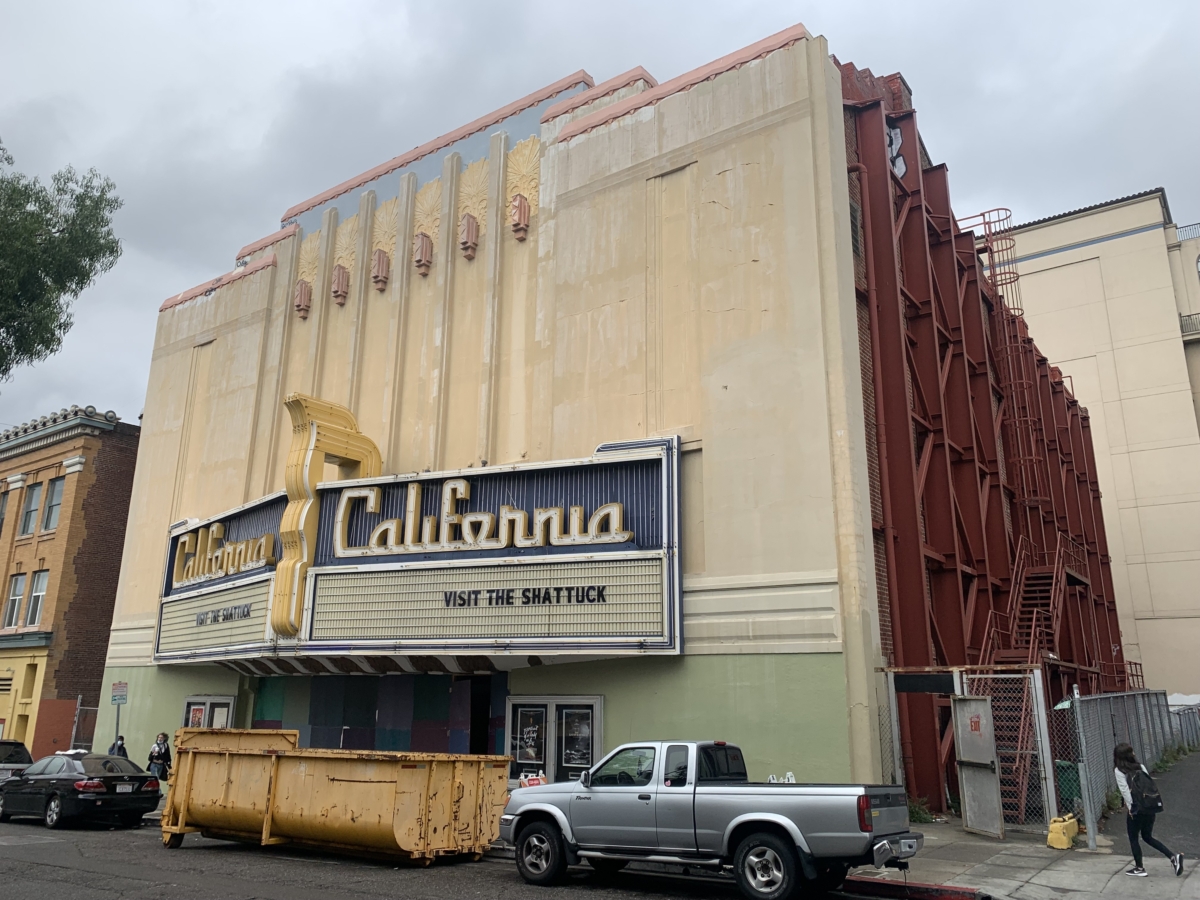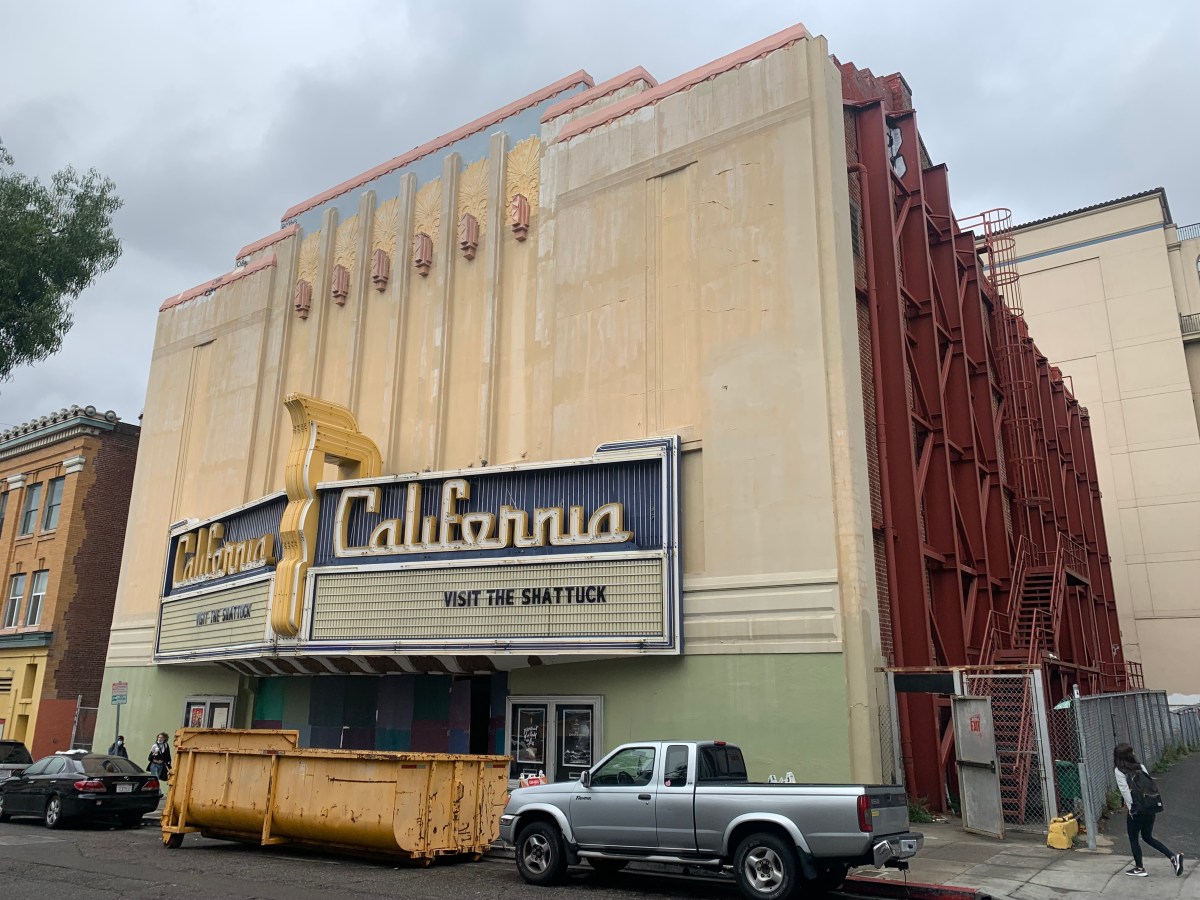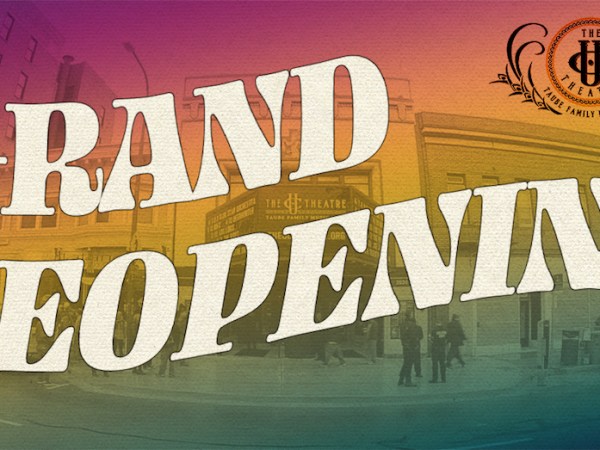
Devotees of the California Theatre have launched a campaign to protect the downtown Berkeley movie palace while its owners move to sell the building as part of a plan to redevelop the site.
The California’s future has been unclear since last fall, when its owners — the descendants of the Berkeley businessman who built the theater more than a century ago — declined to renew the lease of longtime operator Landmark Theatres. Patrons responded with a flood of tributes when Landmark announced that the theater, which had been closed since the onset of the pandemic, would not reopen.
John Muldoon IV, a representative for the theater’s 10-person ownership group, said at a city meeting earlier this month that the family is considering a purchase agreement under which a new owner would “transform” the building by adding housing to the site while also preserving at least some of its distinctive architecture.
“The theater has been an integral part of our family’s history, and we too are very sad to see it go,” Muldoon told the Landmarks Preservation Commission at its April 7 meeting. “The fact is, we simply can’t afford to hold on to it.”
Muldoon addressed the commission during a public hearing on an application from the Art Deco Society of California asking the city to declare the theater a landmark. The application, which more than 100 people signed a petition to support, seeks to protect about two dozen of the theater’s features — including its blue and gold neon marquee, and elements of its Art Deco facade.
None of the theater’s owners have responded to multiple calls and messages from Berkeleyside over the past six months seeking information about plans for the building.
The ownership group is looking to sell the California because the outlook for downtown multiplex theaters is “not good,” Muldoon told the landmarks commission, saying the pandemic and rise of streaming services such as Netflix are keeping moviegoers away. Muldoon did not identify the prospective new owner of the building, nor did he describe specific details of the project they would pursue — such as how much housing it would include and whether the development would be built within the existing theater structure or on top of it.
He said the project would preserve the California’s facade, but did not make the same commitment for its marquee, saying it would “potentially” be retained. The project, Muldoon said, “Would ensure that the building retains its place in Berkeley’s architectural history; it will also add much-needed housing to the local community.”
The Landmarks Preservation Commission is set to take up the Art Deco Society’s application for the theater on May 5. City staff have not yet made their recommendation for whether the building deserves landmark status.
The theater’s Art Deco facade was added during a renovation in 1929 and 1930; the marquee dates from 1952. Art Deco Society Preservation Director Therese Poletti, who wrote the landmark application with help from Daniella Thompson of the Berkeley Architectural Heritage Association, said the angled marquee marks “a transition between Art Deco/Streamline Moderne into Mid-Century Modernism.”
Beyond the physical form of the building, fans are also hoping it can remain a “cultural destination,” said Dale Sophiea, a former manager of the theater who is now part of a group lobbying for its preservation called Friends of the California Theatre.
More than 450 people have signed the group’s petition asking local leaders for help to “preserve this gem,” saying the theater “is too valuable a community resource to let slip away.”
Sophiea said he hopes Berkeley leaders will pull together a “brain trust of community-minded people” to restore the building, following the lead of efforts in cities across the country to revitalize historic local theaters. With the right partnership, Sophiea and others envision the California one day reopening as a movie theater while also offering its 500-seat main auditorium as a venue for live theater, dance or other performing arts groups.
“That building doesn’t deserve the fate that seems possible right now,” he said.
On top of the California’s closure, movie lovers are also raising concerns that a development planned a block away at 2065 Kittredge St. will mean the demise of another downtown theater, Shattuck Cinemas. While downtown Berkeley’s arts district includes other venues for music and live theater, supporters of preserving the California argue the area needs a broad array of entertainment options to draw visitors.
“How many people are going to want to live in downtown Berkeley if the cultural attractions keep dwindling?” Poletti said.


